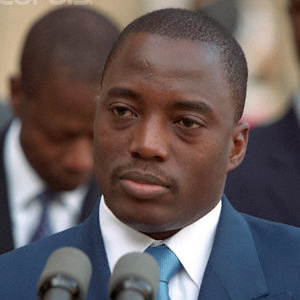DR Congo: A human tragedy
A note By Morteza Kazemian

The world is swamped with the prospect of a US Black president at the White House. But unbelievably, the first decade of the third millennium is witnessing a disaster unfolding in the Black continent. DR Congo is facing a tragedy which has not been noticed much; and most of the world’s population does not know that human beings are dying in Congo. Not of hunger and thirst, but of bullets and knives.
Democratic Republic of Congo (the former Zaire) is one of the largest countries of the world and embodies 60 million people. Through the last decade, it has experienced war and bloodshed and rape and attack.
On 1996, Laurent Kabila waged a coup d’état and Mobutu Sese Seko fled the country. From then on, a conflict began in DR Congo which till 2002 left 4 millions dead and several millions homeless. After Kabila’s assassination on 2002, his son Joseph Kabila gained power and established a coalition government by the help of some foreign countries and the UN. The head of the government was Joseph Kabila and some of opposition figures and rebels were his deputies. This government was bound to pave the way for presidential elections on 2006.
Finally after 40 years, the presidential election was held in DR Congo and Joseph Kabila and his deputy Jean Pierre Bemba succeeded to get in to the second round. But the militias supporting the two candidates got into a bloody conflict in Kinshasa, the capital which was temporarily stopped by international and regional interferences. Finally, Kabila was elected president but it was not the end. The Tutsi rebels under the leadership of Gen. Nkunda started a bloody war with the Congolese government.
Nkunda believes that the government of Congo has not done enough to support Tutsi rebels from Rwandan Hutu rebels. The Hutu rebels are believed to be involved in massacre of half a million Tutsi rebels in Rwanda. They have fled Rwanda and are now staying in Congo. At the same time, the Congolese government has accused Gen. Nkunda of being involved in war crimes between the years 2002 and 2004.
The current conflict in DR Congo is rooted in ethnic hostilities emanating from Rwanda massacre in 1994 and the bloody civil war in Congo.
The Congolese government and the Tutsi rebels have accused Angola, Zimbabwe, and Rwanda of mobilizing their forces for war in Congo. At the same time, Both Congo and Rwanda accuse each other of breaching the other’s territorial integrity. There were rumors that the Rwandan president has great influence over the Tutsi rebels and the report of UN peace keepers has also approved it.
The conflict between the Congolese government and the rebels has left hundreds of thousands of people homeless. They are living a hard life and the torrential rain has made their life more difficult. Thousands of children are desperately searching for food and water. The situation of Congo is undoubtedly a human disaster.
17 thousand UN peace keepers have been sent to Congo. In no other country of the world such great numbers of UN peace keepers are present. Despite of this, the geographical situations of the country and the conflict with rebels in several fronts have stopped the peace keepers from ending the bloody conflict in Congo. There have also been diplomatic trips to Congo but they have all been fruitless. The American envoy, Alan Doss the UN envoy, Bernard Kouchner the French foreign minister, David Miliband the British foreign minister, and Louise Michele the head of EU humanitarian aids are some of the officials who have tried to convince the Congolese and Rwandan sides for a ceasefire.
As it seems, the fighters believe that ending the conflict would have no economic advantage for them; and all the groups involved in Congo conflict are feeding the fighters by natural mineral resources’ income.
The urgent meeting for tackling the Congolese crisis which is going to be held in Nairobi-the Kenyan capital- is one of the most important steps to stop the crisis. The leaders of seven African countries plus the UN secretary general will attend this meeting.
The African continent is experiencing horrible wars and conflicts. DR Congo is one of its worst examples but it is not the only black continent’s country suffering such bloody conflicts. Somalia, Sudan and Chad are some other examples.
The economic advantages of governments in international relations had cast a long shadow over all other things and the human being is forgotten is such environment. As long as the ideological and financial inclinations are leading the world, the human tragedy of Congo and Africa and the world would continue.

